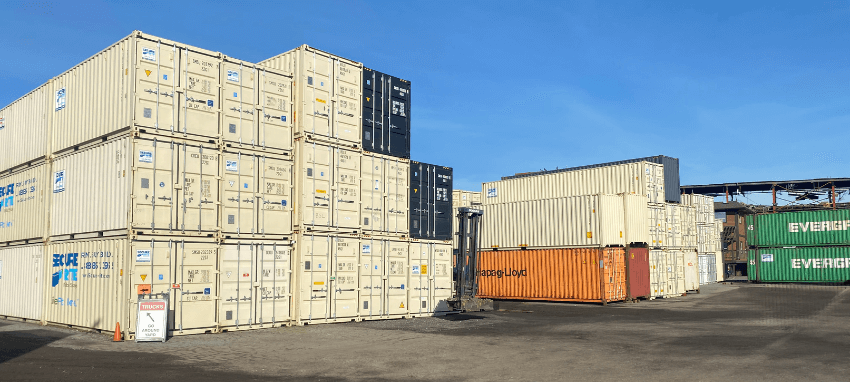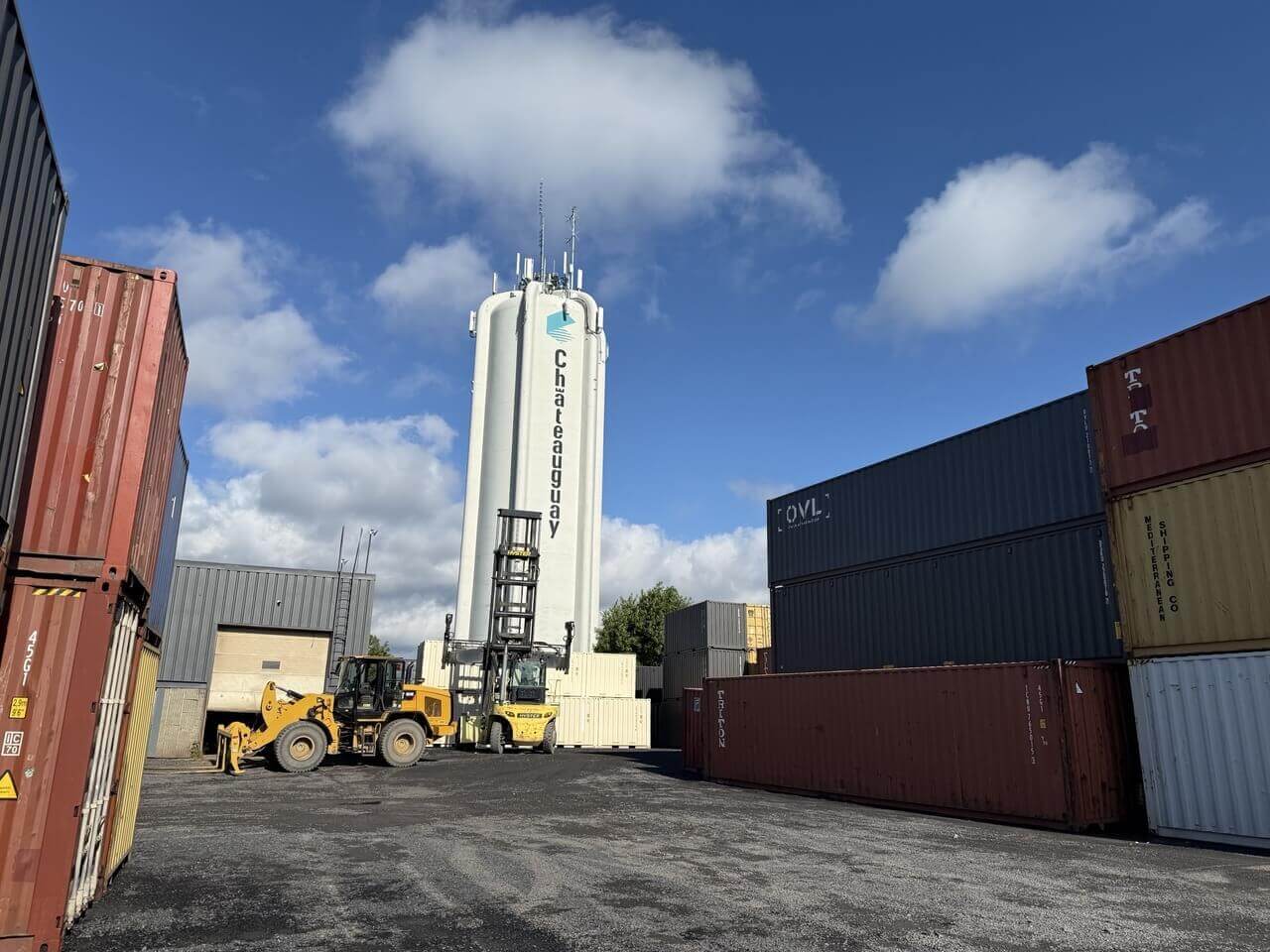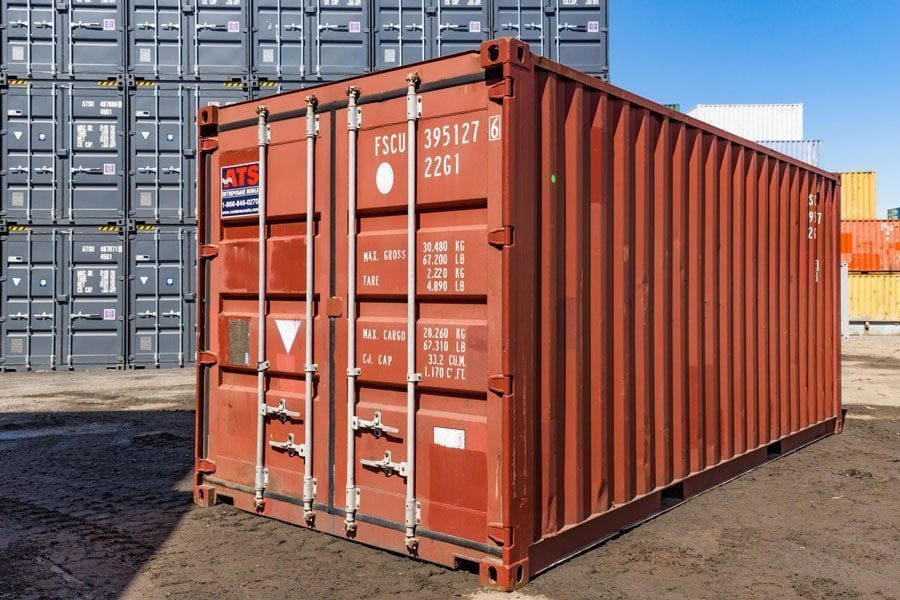Why choose Shipping Containers as a sustainable solution
Wiki Article
Whatever You Need to Understand About Shipping Containers and Their Practical Applications
Shipping containers have progressed from plain tools for transportation to versatile frameworks with various useful applications. Their robust design and common sizing make them excellent for a range of uses past shipping. From cutting-edge housing remedies to sustainable farming, their versatility is significant. The possibilities do not finish there. Exploring their numerous functions discloses unexpected insights right into imaginative options and modern obstacles. What various other roles could these containers play in today's world?The Style and Structure of Shipping Containers

Inside, containers are designed to maximize area, often featuring wood or steel floor covering that can sustain substantial weight. Ventilation systems might be incorporated to avoid wetness accumulation, which is vital for sensitive cargo. Additionally, strengthened edges permit for simple handling by cranes and forklifts, promoting seamless loading and dumping. This thoughtful style and structure add to the containers' versatility across numerous shipping and storage applications.
Benefits of Using Shipping Containers
While several transportation approaches have their benefits, using delivery containers stands out due to their unmatched flexibility and effectiveness. Shipping containers offer a standardized dimension, making them very easy to pile and deliver throughout different settings of transportation, including ships, trucks, and trains. This standardization reduces filling and discharging times, consequently enhancing total productivity.Moreover, shipping containers are created from long lasting materials, giving robust protection for items throughout transit. They are secure and weather-resistant, minimizing the risk of damages from ecological factors or burglary. Furthermore, the modular design of shipping containers enables simple personalization, enabling companies to adjust them for numerous functions, such as storage or mobile workplaces.
Ultimately, their transportability and cost-effectiveness make delivery containers an appealing choice for companies wanting to improve logistics and supply chain operations. These advantages add to the expanding appeal of delivery containers in different industries.
Imaginative Real Estate Solutions With Shipping Containers
Cutting-edge real estate services have arised as an interesting application of delivery containers, leveraging their inherent staminas for property usage. These functional frameworks offer a lasting option to typical structure materials, usually at a portion of the price. Developers and engineers have actually transformed containers right into fashionable, useful homes, satisfying varied way of livings and choices.

Additionally, delivering containers are eco-friendly, promoting recycling and decreasing waste. Lots of projects concentrate on energy efficiency, including environment-friendly roofing systems and solar panels. As urbanization rises, these ingenious real estate remedies provide a useful feedback to housing shortages while fostering a special building visual.
Shipping Containers in Retail and Pop-Up Shops
An expanding variety of stores are transforming to delivering containers as a vibrant service for pop-up shops and retail rooms. These versatile frameworks provide an affordable alternative to conventional store fronts, enabling organizations to create special, attractive environments that attract customers. Their modular layout makes it possible for simple transport and setup, making them optimal for seasonal or temporary retail areas.Retailers can customize delivery containers to show their brand identity, transforming them right into aesthetically appealing stores that stick out in congested industries. The small nature of containers additionally motivates efficient use space, permitting creative formats that enhance customer circulation and interaction. Shipping containers can be located in unique places, such as uninhabited lots or city parks, raising ease of access and foot traffic.

As the retail landscape develops, shipping containers supply a ingenious and versatile service that fulfills the demands of modern-day consumers while improving the shopping experience.
Sustainable Farming Practices Making Use Of Shipping Containers
Lasting farming practices progressively integrate delivery containers as ingenious options for farming - Shipping Containers for Sale. These container ranches use hydroponics to take full advantage of area and resource efficiency, offering an affordable approach to food manufacturing. By transforming shipping containers right into agricultural centers, farmers can deal with food security and ecological issues all at onceContainer Farming Benefits
While conventional agriculture deals with obstacles such as land deficiency and climate adjustment, container farming presents a practical option that maximizes space and resources. This cutting-edge approach enables year-round crop production in controlled environments, reducing dependence on weather conditions. Container farms make use of much less water than standard farming, promoting sustainability and preservation. They can be developed in metropolitan locations, bringing fresh produce closer to consumers and minimizing transport discharges. Additionally, the modular nature of shipping containers makes it possible for scalability, permitting farmers to readjust procedures based upon demand. Container farming also minimizes chemical usage by producing an enclosed ecological community, inevitably enhancing food security. As urban populaces grow, container farming emerges as a sensible option to meet the boosting demand for local, lasting food resources.Hydroponics in Containers
Hydroponics, which enables plants to grow without dirt by making use of nutrient-rich water, grows within the boundaries of shipping containers, making it an ideal technique for city farming. These containers produce a regulated atmosphere that enhances light, temperature level, and moisture, enabling year-round cultivation. With restricted space in city locations, shipping containers supply a scalable service for expanding fresh produce. Hydroponic systems within containers can consist of different techniques, such as nutrient movie technique (NFT) and deep water culture (DWC), which make best use of yield while decreasing water usage. This innovative technique not just enhances food protection but likewise minimizes the carbon footprint associated with conventional farming approaches. Hydroponics in containers represents a forward-thinking service for sustainable city food manufacturing.Economical Farming Solutions
As food manufacturing faces boosting obstacles as a result of environment change and urbanization, shipping containers become an affordable option for agriculture. These flexible frameworks can be repurposed for numerous lasting farming techniques, such as hydroponics and vertical farming. By making use of controlled atmospheres within containers, farmers can maximize development cycles and decrease source consumption, including water and fertilizers. In addition, delivering containers can be strategically placed in metropolitan locations, minimizing transportation costs and enhancing accessibility to fresh fruit and vegetables. Their modular nature permits for scalability, allowing farmers to increase operations as need expands. Repurposing containers contributes to squander reduction, aligning with environmentally friendly agricultural initiatives. On the whole, delivering containers existing ingenious chances for lasting and reliable food production.Emergency and Disaster Relief Applications of Shipping Containers

Organizations frequently use delivery containers to develop mobile clinics or field health centers, making sure that healthcare gets to those in need. In addition, they can be changed into command facilities for coordinating rescue operations, consequently enhancing business efficiency during situations.
Moreover, containers can be changed to keep crucial goods such as food, water, and apparel, securing products till they are dispersed. Their flexibility permits them to be easily transported to various places, guaranteeing that help arrives where it is most urgently required. On the whole, shipping containers play a pivotal role in improving the performance of calamity relief campaigns worldwide.
Regularly Asked Questions
How Are Shipping Containers Transported From One Place to One More?
Shipping containers are transported by means of ships, trains, and trucks, utilizing cranes for loading and unloading. This multi-modal transport system guarantees effective motion across land and sea, connecting global supply chains and facilitating global profession.What Is the Typical Life Expectancy of a Delivery Container?
The typical life expectancy of a shipping container commonly ranges from 10 to 25 years, depending upon upkeep, usage, and environmental variables. Correct treatment can extend their functionality, while disregard might cause wear and tear and damage.Can Shipping Containers Be Customized for Various Uses?
Yes, shipping containers can be changed for various usages. They serve as homes, workplaces, pop-up shops, and storage space systems. Their convenience allows for imaginative adjustments, making them ideal for a vast array of applications.Are Shipping Containers Eco Friendly?
Shipping containers can be eco-friendly, as they advertise repurposing and reusing. Their toughness lowers waste, while their usage in alternative real estate check here and organizations minimizes the demand for new products, contributing to lasting practices.Exactly how Do I Choose the Right Dimension Shipping Container?
To select the appropriate size shipping container, one need to analyze storage space needs, consider the designated use, and evaluate area schedule - sea can for sale. Typical dimensions consist of 20-foot and 40-foot containers, each offering different storage space and transportation requirements effectively
Innovative housing options have actually arised as an exciting application of shipping containers, leveraging their integral staminas for property use. The adaptability of shipping containers enables for creative designs, from single-unit homes to intricate multi-container setups. Sustainable farming techniques increasingly include shipping containers as innovative services for agriculture. Additionally, the modular nature of delivery containers makes it possible for scalability, allowing farmers to adjust operations based on demand. Hydroponics, which enables plants to expand without soil by utilizing nutrient-rich water, flourishes within the boundaries of delivery containers, making it an optimal method for metropolitan farming.
Report this wiki page